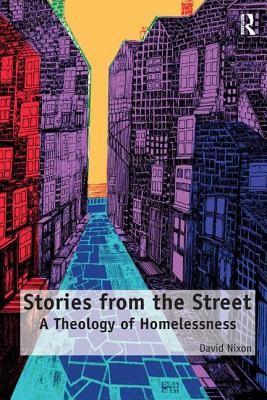
- We will send in 10–14 business days.
- Author: David Nixon
- Publisher: Routledge
- ISBN-10: 1409437469
- ISBN-13: 9781409437468
- Format: 15.6 x 23.4 x 1.2 cm, softcover
- Language: English
- SAVE -10% with code: EXTRA
Reviews
Description
Stories from the Street is a theological exploration of interviews with men and women who had experienced homelessness at some stage in their lives. Framed within a theology of story and a theology of liberation, Nixon suggests that story is not only a vehicle for creating human transformation but it is one of God's chosen means of effecting change. Short biographies of twelve characters are examined under themes including: crises in health and relationships, self-harm and suicide, anger and pain, God and the Bible. Expanding the existing literature of contextual theology, this book provides an alternative focus to a church-shaped mission by advocating with, and for, a very marginal group; suggesting that their experiences have much to teach the church. Churches are perceived as being active in terms of pastoral work, but reluctant to ask more profound questions about why homelessness exists at all. A theology of homelessness suggests not just a God of the homeless, but a homeless God, who shares stories and provides hope. Engaging with contemporary political and cultural debates about poverty, housing and public spending, Nixon presents a unique theological exploration of homeless people, suffering, hope and the human condition.
EXTRA 10 % discount with code: EXTRA
The promotion ends in 17d.18:53:36
The discount code is valid when purchasing from 10 €. Discounts do not stack.
- Author: David Nixon
- Publisher: Routledge
- ISBN-10: 1409437469
- ISBN-13: 9781409437468
- Format: 15.6 x 23.4 x 1.2 cm, softcover
- Language: English English
Stories from the Street is a theological exploration of interviews with men and women who had experienced homelessness at some stage in their lives. Framed within a theology of story and a theology of liberation, Nixon suggests that story is not only a vehicle for creating human transformation but it is one of God's chosen means of effecting change. Short biographies of twelve characters are examined under themes including: crises in health and relationships, self-harm and suicide, anger and pain, God and the Bible. Expanding the existing literature of contextual theology, this book provides an alternative focus to a church-shaped mission by advocating with, and for, a very marginal group; suggesting that their experiences have much to teach the church. Churches are perceived as being active in terms of pastoral work, but reluctant to ask more profound questions about why homelessness exists at all. A theology of homelessness suggests not just a God of the homeless, but a homeless God, who shares stories and provides hope. Engaging with contemporary political and cultural debates about poverty, housing and public spending, Nixon presents a unique theological exploration of homeless people, suffering, hope and the human condition.


Reviews